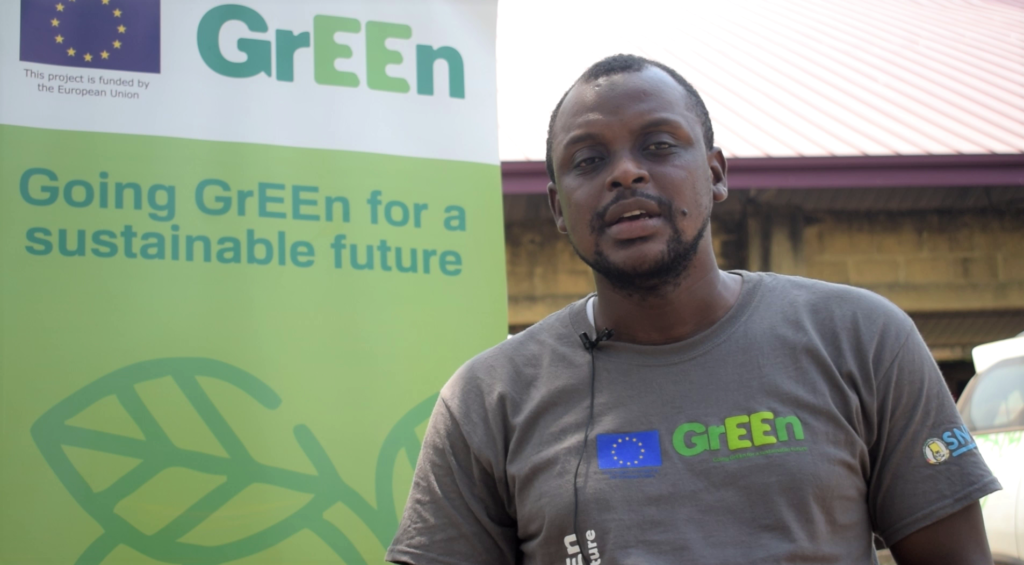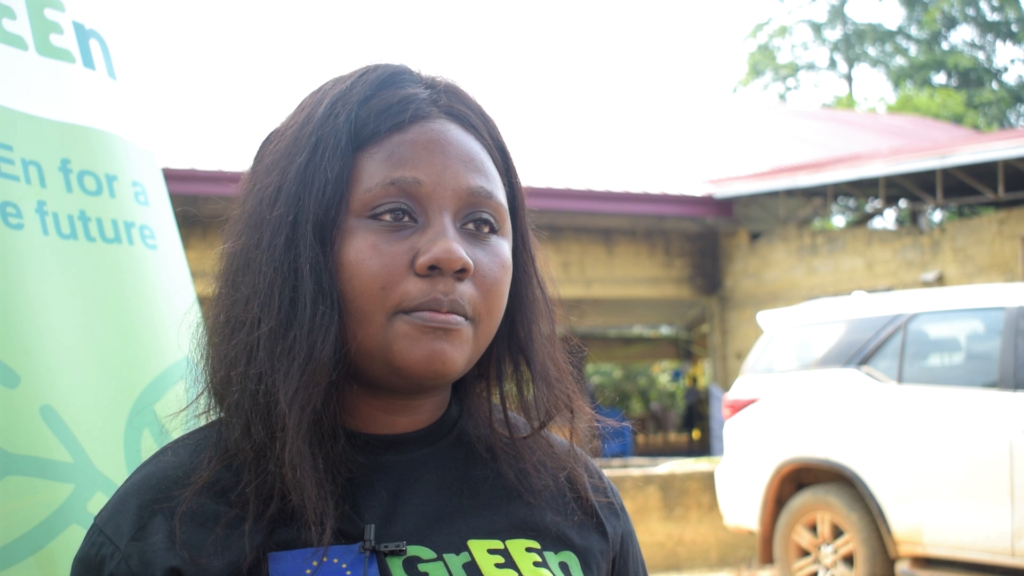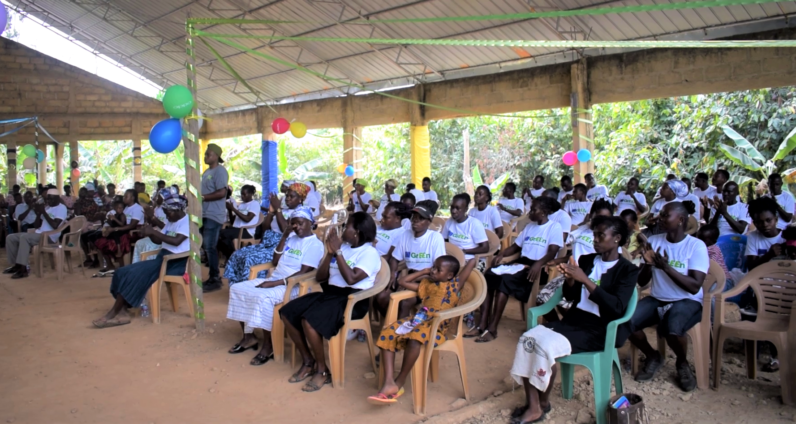Seventy-five (75) residents of Abenneso in the Western Region, have benefitted from the SOS-GrEEn cash for work initiative.
The initiative empowers the youth with technical skills in addition to a daily minimum wage of 12 cedis to help create their green businesses.
It is a 4-year project expected to contribute to the development of a green and climate-resilient economy.
SOS-Green Ghana will provide employability for beneficiaries to create a green economy for over 4,000 youths in ten MMDA's of the Western and Ashanti Regions.
The intervention by the organization in the municipality forms the basis of the development of a GrEEn Training manual.

The beneficiaries were trained on identifying green opportunities in their communities and how to be entrepreneurs in the green sector.
“Our main aim is to empower 4,000 cash for work beneficiaries such that they are able to secure green employment or start a green business. A daily minimum wage of 12 cedis is given to cash for work beneficiaries,” Project coordinator SOS- GrEEn Ghana, Shaibu Fuseini said.
He said, “over 75 beneficiaries have graduated from the project and we want beneficiaries to start a business in their local green economy, so we took them through some training, soft skills, employable and entrepreneurial skills”.
According to the project coordinator, the selection of the district is spearheaded by the Ministry of Local Government and Rural Development.
“…when the Ministry selects these districts, we look through the medium-term development plan of these MMDA’s and find a climate infrastructure that can be funded”, he said.
Partners of the SOS- GrEEn project, United Nations Capital Development Fund (UNCDF) educated beneficiaries on financial literacy during the training.

Berenge S. Jantuah, Community Development Officer UNCDF, noted, “the training will help participants escape poverty by building savings, growing assets and creating wealth”.
Beneficiaries who graduated from the SOS-GrEEn cash for work project, shared their experience after the 3 months training.
Tracy Donkor, a beneficiary farmer revealed that through the project, she has been able to buy a fridge with which she will start a 'sobolo' business.
Another beneficiary noted, “my money is now safe because United Nations Capital Development Fund (UNCDF) has opened an account for me”.
The project was funded by the European Union in partnership with the United Nations Capital Development Fund (UNCDF).
Latest Stories
-
Gold Fields Ghana Foundation challenges graduates to maximize benefits of community apprenticeship programme
39 mins -
GBC accuses Deputy Information Minister Sylvester Tetteh of demolishing its bungalow illegally
50 mins -
Boost for education as government commissions 80 projects
1 hour -
NAPO commissions library to honour Atta-Mills’ memory
1 hour -
OmniBSIC Bank champions health and wellness with thriving community walk
1 hour -
Kora Wearables unveils Neo: The Ultimate Smartwatch for Ghana’s tech-savvy and health-conscious users
1 hour -
NDC supports Dampare’s ‘no guns at polling stations’ directive
1 hour -
Police officer interdicted after video of assault goes viral
2 hours -
KNUST’s Prof. Reginald Annan named first African recipient of World Cancer Research Fund
2 hours -
George Twum-Barimah-Adu pledges inclusive cabinet with Minority and Majority leaders
2 hours -
Labourer jailed 5 years for inflicting cutlass wounds on businessman
2 hours -
Parliament urged to fast-track passage of Road Traffic Amendment Bill
2 hours -
Mr Daniel Kofi Asante aka Electrician
2 hours -
Minerals Commission, Solidaridad unveils forum to tackle child labour in mining sector
3 hours -
Election 2024: Engagement with security services productive – NDC
3 hours

